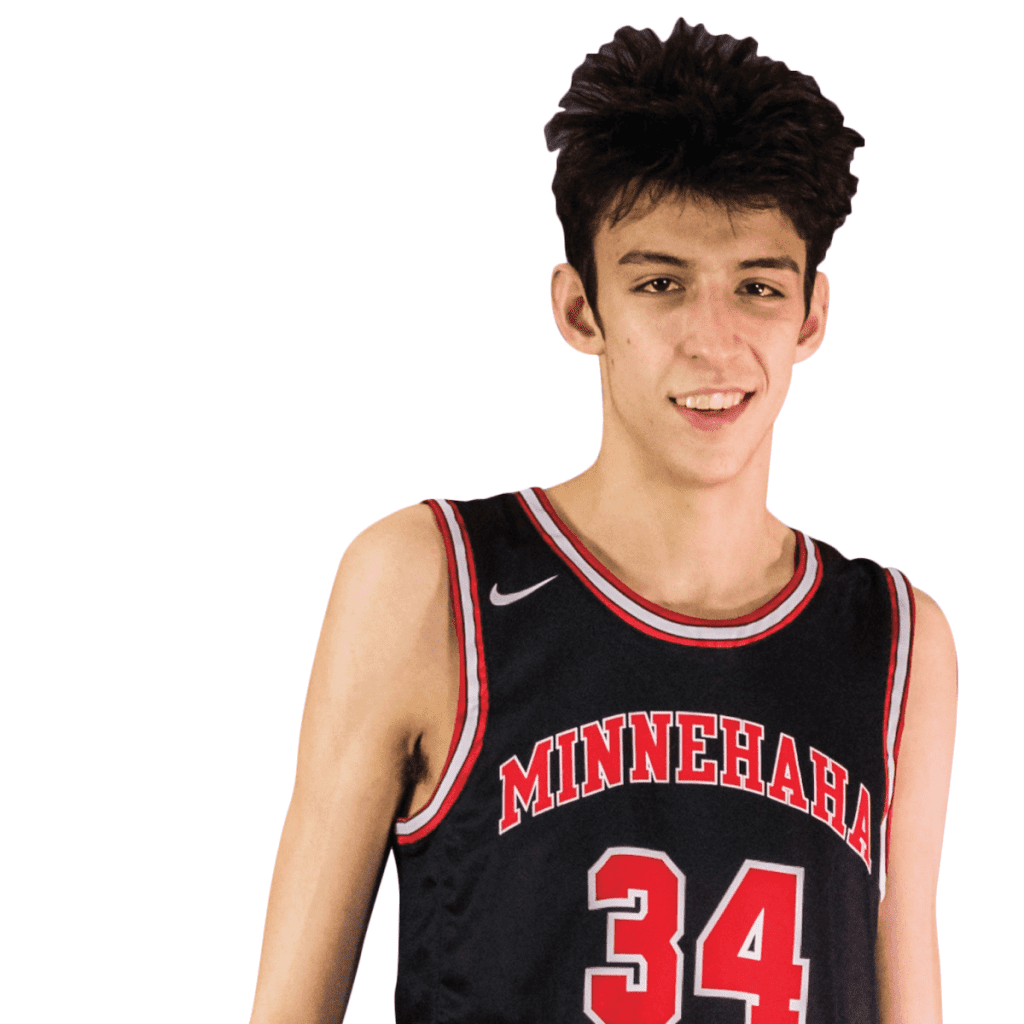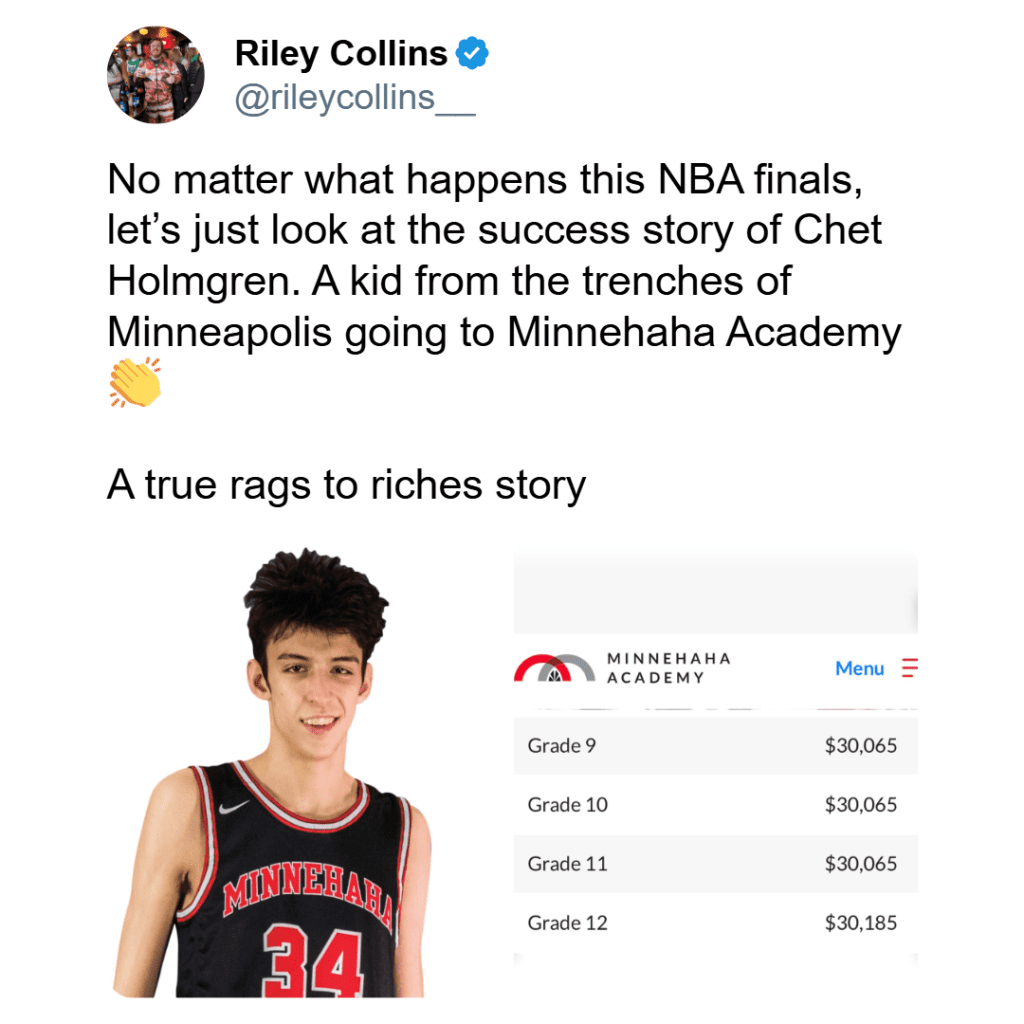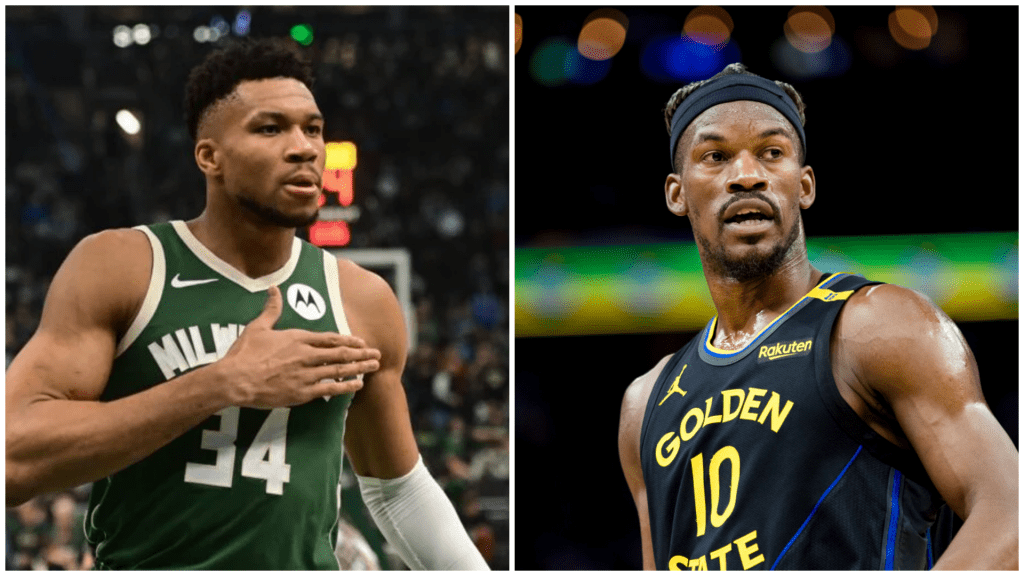How a $30K Private School Kid Became an ‘Underdog’ in the NBA — And Why Fans Fall for These Fake Struggle Stories
We all love a good “rags to riches” tale, especially in sports. Whether it’s a kid pulling himself up by bootstraps or overcoming impossible odds, underdog stories hit hard. But lately, something odd is happening: we’re planting those narratives on athletes who never actually struggled. The latest example? Chet Holmgren, a rising NBA star who went to an elite private school and never lived in hardship—yet was framed as a kid from the “trenches” by fans and media. That twisted lens shows how much we love these stories, even when they don’t exist.

When the Narrative Doesn’t Match the Reality
Imagine hearing about a Minnesota kid who had a tough upbringing, went to battle every day, and finally made it big. That image is powerful. But in Holmgren’s case, it’s not accurate. He grew up playing basketball in Minneapolis, then attended Minnehaha Academy, an elite private school with tuition well over $30,000 per year. Instead of grind and sacrifice, his journey featured opportunities most of us can’t even dream of—travel teams, top coaches, elite facilities. And yet, many retold it as if he came from the hood.
That sarcastic meme calling him a kid from the “trenches” of Minneapolis? It’s a pointed jab—but it cuts for a reason. It’s mocking the forced narrative that every athlete has to emerge from hardship to be heroic. That idea is so baked into our culture, we believe it even when it’s not true.
We’re wired to love underdogs. Psychologists say we feel more emotionally connected to people who overcome the odds. We celebrate humble heroes not just because of their talent, but because they feel relatable.
Yet when the story doesn’t match reality, the narrative falls apart—and we risk doing real harm. We expect humility. We expect struggle. But what if someone grew up with privilege? Does that make them unworthy? Does that mean they can’t inspire? That’s the real question.

What This Tells Us About Sports Media
We choose convenient narratives. It’s no secret that underdog stories sell. Sports shows, highlight reels, and even brand commercials lean into these arcs because they work. A nobody becoming a somebody is a script we all know and love. But when we apply that script to someone like Holmgren, we’re not just bending the truth—we’re completely rewriting it.
The problem is, we’re also ignoring the context. Chet had access to resources, coaching, and exposure from a young age. That’s not a flaw—it’s a fact. And in many ways, that’s what helped him become great. But the media often skips over that part to make the story more dramatic.
And let’s be honest—there’s a racial and class angle here too. We often assume that Black athletes come from poverty, while white athletes get labeled “gym rats” or “coach’s sons.” Chet is white, tall, and skilled, so he’s framed as smart and methodical. But to make him more appealing to mass audiences, the story suddenly turns him into an underdog too. It’s a strange, uncomfortable blending of stereotypes and spin.
It also hurts real underdogs. When someone who truly came from nothing sees their story watered down or ignored, it’s frustrating. And for fans, it becomes harder to know what’s real and what’s just manufactured drama.
A Better Way Forward

We don’t need every athlete to come from the dirt to celebrate their greatness. Let’s shift what we appreciate. If someone had opportunities, support, and access to training, that should be admired too. Not everyone needs to struggle to succeed.
We can still root for Chet Holmgren. We can appreciate his skills, his hustle, and his rise through the basketball world. But we don’t need to pretend he’s something he’s not. Being honest about privilege doesn’t take away from his talent—it just gives credit where it’s due.
Let’s also remember that not every story has to fit the same mold. Some players rise from poverty. Some grow up with private trainers. Some are sons of former players, and some teach themselves on a street court. All of those stories are valid. All of those journeys matter.
So next time we see a post about an NBA player who “made it out,” maybe we pause and ask—out of what, exactly? Because not every hero has to come from the trenches. And not every trench is real.